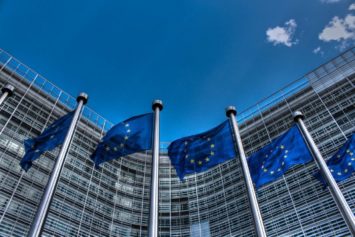As the world community comes together to force the Iranian government to stop moving toward nuclear weapons—something Iran president Mahmoud Ahmadinejad denies his government is doing—countries in the European Union announced that they were imposing sanctions on major Iranian oil and gas companies.
The sanctions, which also include restrictions on Iran’s central bank, are intended to limit Iran’s access to cash, which would be a severe blow to the country’s ability to develop a nuclear weapons system.
Pushed by Israeli Prime Minister Benjamin Netanyahu, who believes his country would be a prime target of a nuclear-armed Iran, the U.S. and the rest of the world community has been cranking up the pressure on Iran through sanctions and diplomatic measures.
The question of Iran’s nuclear capabilities will undoubtedly be a major topic of the presidential debate tonight at Hofstra University in Long Island, which is supposed to focus on foreign affairs. Republican Vice Presidential candidate Paul Ryan tried to accuse the Obama administration of being too soft on Iran during last week’s vice presidential debate. Mitt Romney is sure to double down on the issue, particularly considering his extremely close relationship with Netanyahu, who worked together with Romney in the 1970’s at Boston Consulting Group when the two men were fresh out of business school.
Romney claims Obama needs to push Iran harder to make sure it’s not developing nuclear weapons; Obama says sanctions are working and accuses Romney is moving the U.S. toward yet another war in the region.
More than 30 Iranian firms and institutions were targeted by the European Union to have their assets frozen in the EU, including the National Iranian Oil Company (NIOC), a large crude exporter, and the National Iranian Tanker Company (NITC). Both companies are considered extremely vital to the Iranian oil industry, the main source of revenue for the government.
But Iran said the sanctions would not work.
“We recommend that, instead of taking the wrong approach and being stubborn and using pressure, … with a logical approach they can return to discussions,” foreign ministry spokesman Ramin Mehmanparast told a news conference.
The EU was following the direction of the United States, which imposed restrictions on NIOC last month and which has blacklisted the tanker company.
EU governments said that both NIOC and NITC provide financial support to Iran’s government, though a senior NITC official called this argument “baseless.” He said that the group was privatized in 2000 and was now owned by three pension funds.
“It is nonsense and it does not add up,” the NITC official told Reuters from Tehran. “Our shareholders have control of the company. There is no government interference and there is no connection.”
But an expert in Washington told Reuters that both NITC and NIOC were used as fronts by Iran for nuclear procurement abroad.
“To shield NITC from sanctions, the Iranian regime concocted a fictitious privatization scheme in the early 2000s,” said Emanuele Ottolenghi of the Washington-based Foundation for the Defense of Democracies, which has advised the U.S. government and lawmakers on sanctions. “But in truth, NITC was always a tool in the hands of the regime.”
All of the pressure on Iran is intended to pull Ahmadinejad into serious negotiations about its nuclear intentions.
“We focus our sanctions on those who are responsible for the (Iranian) nuclear program, while at the same being open to talks,” Michael Mann, a spokesman for EU foreign policy chief Catherine Ashton, told a regular news briefing in Brussels. “We have always said we don’t do sanctions for their own sake.”
Iran denies its work has any military intentions and says it will not scale back activities unless sanctions are lifted.


